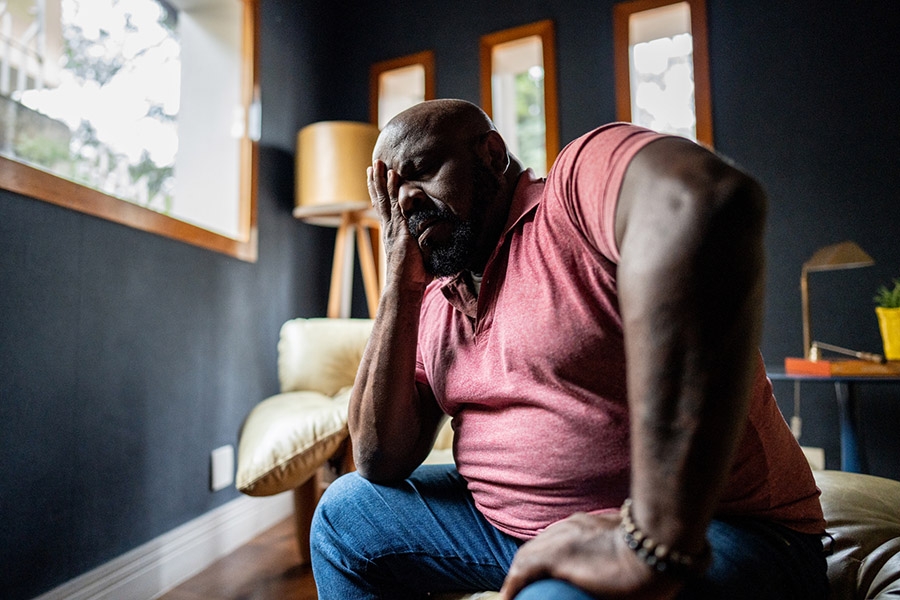Getting placed on the waiting list for a heart transplant is the first step toward returning to an active and full life. But once you’re on the heart transplant waiting list, you might be wondering what comes next.
Here are some of the questions I’m asked by many of my patients who have advanced heart failure as they look forward to their possible transplant.
How long is the waiting list for a heart transplant?
Getting listed for a heart transplant does not mean you can get one right away. Due to limited donor organs, most patients will have to wait for their new heart. But how long depends on many different factors, including your:
- Overall health
- Blood type
- Body size
The number of other local patients on the waiting list plays a big role, too. Where you choose to have your heart transplant can also make a difference.
Some patients receive their donor heart in days. In other cases, it can take over a year. But here’s some very good news: Nearly 71% of our patients waiting for a heart transplant at Temple get their donor hearts within a year. That’s much higher than the national average of 55%.
Regardless of how long your wait might be, one thing’s for sure: you need to be ready for your heart at any time. When you receive that call, it’s important to get to the hospital for surgery right away.
What can I do to take care of myself while I’m waiting?
Being on the waiting list gives a fresh sense of hope, but it can also leave you anxious or worried. That’s completely normal. Rather than let your worries take over, my advice is to focus on being good to yourself. You’ll feel like you have some control over the situation, and it’ll help you stay in the best health possible — both now and after your transplant.
Here are 5 tips that I share with anyone waiting for a heart transplant:
1. Go to all your doctor appointments and take your medications.
Your health status can determine your position on the donor-heart waiting list. Seeing your doctor regularly and taking your medications helps keep your current heart – and your whole body – in the best possible health. So when your new heart arrives, you’re ready.
Let your doctor know if you’re having any problems getting or keeping your prescriptions filled.
2. Keep your phone with you at all times.
You’ll need to head to the hospital at a moment’s notice when you’re matched with a donor heart. Always have your phone nearby with a full charge, and be sure to answer every call.
Also, it’s crucial that the transplant team have the correct phone number to contact you. Let them know if your number changes.
3. Eat well.
Take steps toward a heart-friendly diet, and limit your intake of sweet and processed foods. Eating right will help keep your weight in check, which is important while you’re waiting for your transplant.
4. Stay active.
Try to move every day, even if it’s just taking a casual walk around the block. Exercise lifts your energy levels and your mood. As long as you’re listening to your body and following any instructions given by your doctor, there’s no downside to becoming more active.
5. Talk to someone.
You don’t have to hide your feelings. Share your worries or concerns with a trusted family member or friend. Or visit a support group for patients who have undergone heart transplants or who are waiting for a donor heart. Sometimes talking to people who’ve been in your shoes can help you feel better.
We offer a free virtual heart failure support group that is open to anyone with heart failure. Family members are encouraged to join, too.
If you’re struggling with feelings of depression or anxiety, don’t be afraid to seek out a mental health expert.
What is the survival rate for heart transplant patients?
Between 85% and 90% of patients are still alive 1 year after heart transplant surgery. After 3 years, the survival rate is nearly 75%. That’s higher than rates in the past, thanks to advances in treatments that help prevent infections post-surgery.
It’s Worth the Wait
Waiting for a heart may be one of the hardest parts of the transplant process. But focusing on taking good care of your physical and mental health can help make the wait time go faster, and help prepare your body for a new heart. And when you do get that heart, you’ll be on the path to enjoying your best self once again.
Helpful Resources
Looking for more information?
- Learn what to expect in your heart transplant journey
- Get to know our heart transplant team
- View inspiring messages from heart failure survivors at Temple
- Read heart transplant FAQs
Editor's Note: This blog was updated on August 5, 2021, to reflect the latest heart transplant data from the Scientific Registry of Transplant Recipients report.


